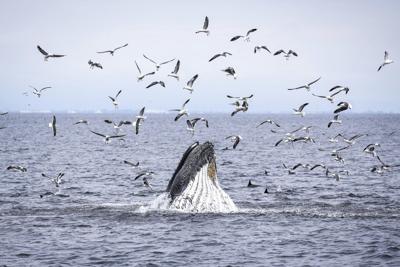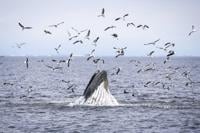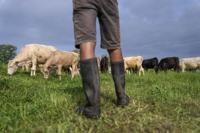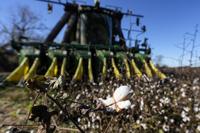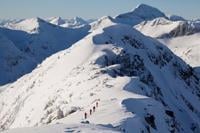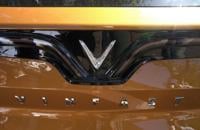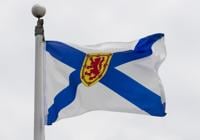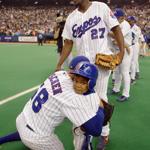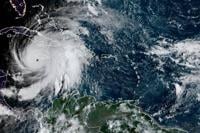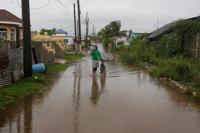VANCOUVER - There's been a series of entanglements and collisions involving humpback whales in British Columbia waters in recent weeks as numbers of the mammals surge, but the circumstances of the latest crash were "exceedingly rare," said the head of the Pacific Whale Watch Association.
That's because the boat suspected to have struck a humpback found dead in Howe Sound was a whale-watching vessel, operated by the B.C.-based Prince of Whales tour company.
Erin Gless, the association's Washington state-based executive director, said she's unaware of any other fatality thought to have involved a whale-watching vessel.Â
"We are certainly very upset at the loss of any whale, but it's even more upsetting under these circumstances with a possibility that it's associated to a professional whale-watching vessel," she said.Â
"To my knowledge, we have not dealt with this in the past."Â
Prince of Whales said in a statement on Monday that the firm was "devastated" by the discovery of the dead humpback off Keats Island, days after one of its vessels hit a whale in Howe Sound. It said it could have been the same whale, based on the location and timing.
Gless said the dead animal was a four-year-old humpback known as Wisp, but its cause of death isn't known as Fisheries and Oceans Canada is still investigating.Â
Fisheries and Oceans Canada said in a statement that humpback numbers had rebounded over the last two decades, especially in the southern Salish Sea.Â
"The probability and lethality of a ship strike depends on factors such as whale density, ship traffic, as well as the size and speed of boats," the department said.Â
"In recent years, abundance of humpback whales in the southern Salish Sea was lowest in winter and highest in fall, with an estimated 416 individual whales using ºÚÁϳԹÏÍø waters between Vancouver and the western end of the Strait of Juan de Fuca."Â
Lance Barrett-Lennard, a British Columbia marine mammal research scientist  with the Raincoast Conservation Foundation, said recent boat strikes that have injured and killed humpback whales seem "almost inevitable" as their numbers increase in waters frequented by high-speed vessels.
Barrett-Lennard said no boat operator wants to hit a whale, and the "culture" of mariners is evolving to be more aware of the risks, "but not fast enough."
Gless said the association has annual training and best practices for its members, including slowing down in the vicinity of whales and constant communication between vessels.
She said the Prince of Whales vessel was in an area with no reported sightings and was scanning the area when a humpback unexpectedly surfaced in its path. The collision resulted in three passengers needing medical treatment back in Vancouver.
The company said Tuesday that it had no further comment.
"One of the things that I really want to stress is that if this could happen to a trained vessel that was actively and very carefully searching for whales, it can certainly happen to any vessel," Gless said.
She said it was incumbent on both professional operators and all boaters to be "exceptionally vigilant out there on the water."Â
Gless said she was aware of the criticisms of the whale-watching industry, but the vessels play a key role in communicating with ferries and other vessels about whale sightings, helping "prevent or at least reduce greatly the risk of ship strikes."Â
"We're kind of on the front lines," she said. "There are actions that our operators are taking every single day in order to ensure that the whales that we do watch and rely on are safe."Â
Gless said it's been a "terrible year" for entanglements involving whales and fishing gear, and whale-watching vessels are often the first to report them to Fisheries and Oceans Canada for rescue operations.
Earlier in October, a humpback calf was deeply gashed after Hullo Ferries reported a collision near Vancouver, while a dead humpback was found near Prince Rupert in September after being struck by a BC Ferries vessel.
Barrett-Lennard said vessels travelling at high speeds create more noise, which also harms whales, and dangers to whales could be lessened if boats reduced speeds in known whale "hot spots" and crews increase efforts to spot animals during voyages.
He said the rarity of such strikes doesn't mean more care isn't needed from boat operators, likening it to traffic safety measures in school zones.Â
"I live next to a school and the kids walking to school and there's crosswalks and so on. I've never hit a kid," he said.
 "The reason that we don't hit kids all the time is because we're incredibly careful. And there's signs and there's crossing guards and we've created a system to make it safe."
This report by ºÚÁϳԹÏÍø was first published Oct. 28, 2025.Â

